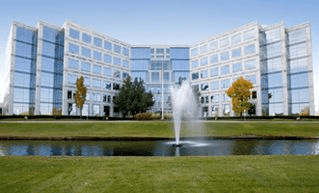
Benefits of Leasing vs. Purchasing office space. Economic uncertainty and market volatility are causing many of companies to question their commercial office space needs. What’s the right decision for your business? Should you lease office space or purchase office space? The short answer is, well, it depends. Not sure if leasing is right for you? Comparing the benefits of leasing office space against your company’s commercial real estate needs can help.
Some of the benefits vs. purchasing office space include:
Increased Flexibility. Leasing office space provides flexibility that you lose when you purchase an office building or office condo. You have the opportunity to expand as you grow and to sublease office space should you downsize. By leasing, you also maintain the flexibility to move the business when the lease expires, without the headache of a building sale.
Smaller Initial Cash Outlay. When leasing office space, depending on your market, credit standing, and negotiated terms, your initial cash outlay will generally consist only of first and last months’ rent. Purchasing commercial real estate requires a down payment—often as high as 25 percent of the purchase price—as well as the expense of appraisals, building inspections, loan fees, and property improvements. For example, an office building listed for sale at $4,400,000 is also listed for lease for $30,000 per month. At 25 percent down this represents a $1,100,000 cash outlay, versus a $60,000 initial lease deposit – a difference of 95 percent.
Tax Benefits. Because an office lease is a business expense, it is fully tax deductible. This includes all financial obligations to your landlord. So if your landlord passes through property taxes or janitorial fees, you can deduct the costs. Office building owners can write off some costs as well, but generally over much longer periods of time. For example, property improvements must be written off over a period of 39 years. Office space renters also have less tax paperwork than owners. Please note, tax laws are fluid and nuanced, so it is vital to consult with your attorney and tax professional to understand your unique obligations.
Less Dependence on Credit. While your credit can affect your office space rental, particularly the initial rent and security deposit, the effects are more severe when purchasing. If you do not have good credit, you may fail to qualify for a loan, or if you do, high interest rates will put a strain on your monthly expenses.
Improved Location and building quality. Leasing allows you the benefit of upgraded facilities and prime locations. Real Estate 101 teaches us that all property should be put to its “highest and best use.” In layman’s terms, this means that areas of high demand will produce large projects capable of meeting the demand, putting the purchase of Class A office buildings and low-rise suburban office complexes beyond the size and price limits of most businesses.
Reduced responsibilities. Owning commercial office property means maintaining it. This can include leasing vacant space, managing janitorial issues, property maintenance, and security, among other expenses. Even if you hire a property management company to handle day-to-day operations (which can be expensive) this can still be a time consuming process. Leasing simplifies your life and allows you to focus on your core business.
Opportunity Costs. Money spent purchasing your office space is money that is not invested into your business. This can be especially critical for newer businesses that need money to grow and invest in its people, business and infrastructure.

